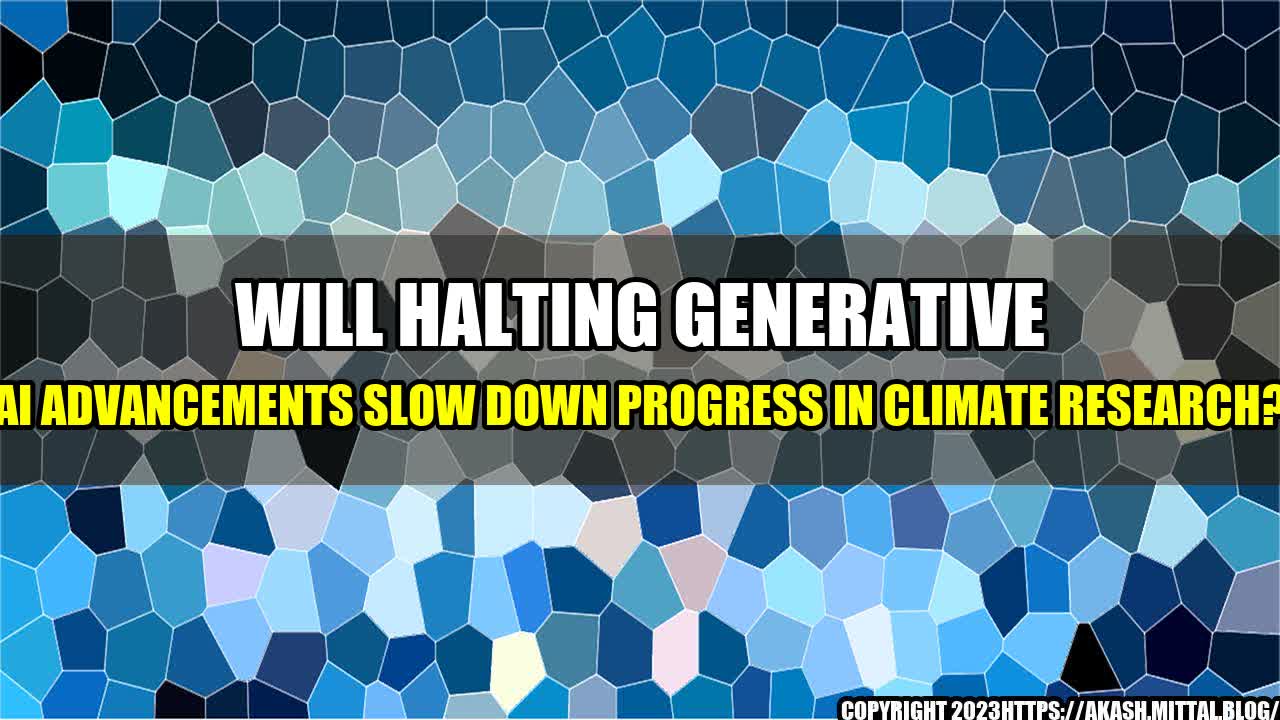The AI and Climate Change Mainstream Connection
With the world suffering from the harmful effects of climate change, society is pushing towards innovative solutions for the crisis. In recent years, artificial intelligence (AI) has emerged as an important ally to many fields of science, including climate research. AI offers an unprecedented opportunity to study historical data, detect patterns, and model scenarios with enormous precision. However, a growing concern is how the push to advance generative AI techniques may be harming the progress of climate research altogether.
The mainstream connection between generative AI and climate research is quite simple: climate scientists need accurate models that can simulate future scenarios of climate change. However, to create these models, they need to be trained on huge amounts of environmental data. This is where generative AI techniques come into play. These methods can develop simulations of environments based on limited input datasets. As a result, they can help scientists deepen their understanding of how the world's many complex ecosystems interact with each other.
On the surface, using AI to create generative models appears to be a no-brainer. However, recent developments in the field of generative AI have caused climate researchers to stop and think twice. With the use of batch normalization techniques and adversarial training approaches, researchers can now generate a practically infinite number of possible scenarios, resulting in a "climate roulette". This is a process of predictive modeling that provides an extremely wide range of possibilities for predicting the outcome of a specific environmental scenario. By their nature, generative models rely heavily on statistical probability, which can lead to less accurate data when looking at more complex environmental systems.
In addition, generative AI models can sometimes track towards the development of outlier scenarios. These are scenarios that may occur only in rare instances, and therefore aren't relevant to making sensible climate modeling predictions. Oftentimes, outlier scenarios can lead to dire consequences, such as predicting an overly optimistic result that fails to accurately reflect the impacts of climate change.
Perhaps most alarmingly, generative AI can create a divide between academia and industry. As climate research is an interdisciplinary field, it has been critical to engage experts and stakeholders from a variety of different industries. Many industry experts have become skeptical of the use of generative AI techniques because they don't understand how these tools work. As a result, this can lead to less meaningful engagement that can impact the efficacy of scientific research and progress.

Curated by Team Akash.Mittal.Blog
Share on Twitter Share on LinkedIn